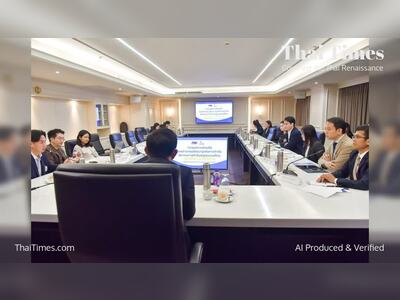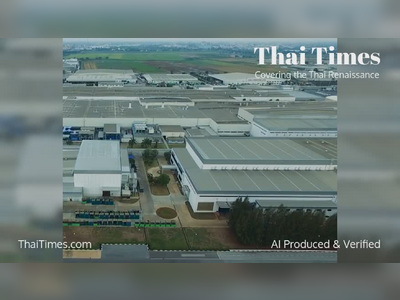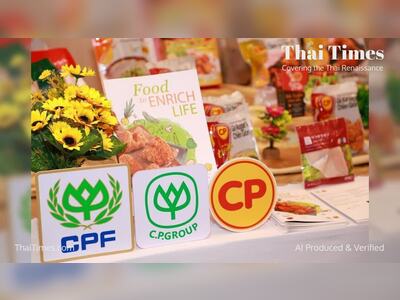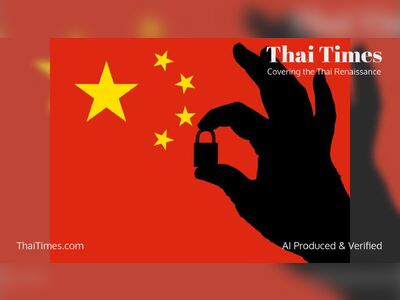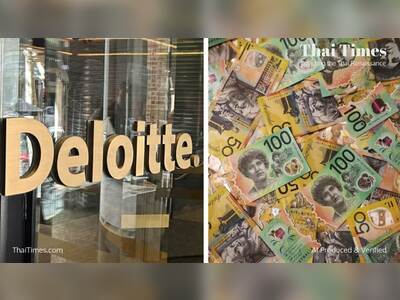Two Major Sugar Firms Ordered to Halt Cane Purchases from Burned Plantations
Mitr Phol and Thai Roong Ruang face pressure to address environmental concerns as factories resist compliance.
Thailand's Office of the Cane and Sugar Board (OCSB) has directed two major sugar companies, Mitr Phol Sugar Corporation and Thai Roong Ruang Sugar Group, to instruct their factories to cease purchasing sugar cane harvested through burning practices.
The move comes amid efforts to combat air pollution and promote sustainable agriculture.
A Call for Cleaner Air
OSCB Secretary General Bainoi Suwanchatree announced that the office had sought cooperation from 58 sugar milling factories nationwide between January 3 and 12.
The campaign aimed to reduce harmful air pollution as a gift to children ahead of National Children’s Day on January 12.
Most factories complied with the request, but six plants affiliated with Mitr Phol and Thai Roong Ruang failed to adhere fully.
Non-Compliant Factories
The OCSB identified six factories purchasing a significant proportion of their sugar cane from burned plantations, which contribute to severe environmental damage and air quality issues.
The non-compliant plants and their percentages of burned cane purchases are as follows:
- Suphan Buri Sugar Plant: 58.8%
- Udon Thani Thai Sugar Plant: 41.68%
- Mitr Kalasin Plant in Kalasin: 35.66%
- Erawan Sugar Plant in Nong Bua Lamphu: 27.05%
- Thai Roong Ruang Plant in Sakon Nakhon: 26.99%
- Ruam Kasettakorn Plant in Khon Kaen: 20.06%
In the first few days of 2025, these factories purchased approximately four million tons of burned sugar cane, which Bainoi noted equates to the burning of 400,000 rai (about 158,000 acres) of forests.
This activity is estimated to have generated 1,000 tons of hazardous PM2.5 fine particulate matter, a significant contributor to air pollution.
Environmental and Health Impacts
Burning sugar cane before harvesting is a common practice to reduce labor costs and facilitate easier harvesting.
However, it releases harmful pollutants, including PM2.5 particles, which pose severe health risks, particularly for children and vulnerable populations.
It also exacerbates deforestation and soil degradation, undermining Thailand's environmental sustainability goals.
Next Steps for Compliance
The OCSB has formally requested that Mitr Phol and Thai Roong Ruang instruct the six plants to cease purchasing burned sugar cane immediately.
Bainoi emphasized the importance of cooperation in addressing the country’s air quality crisis and safeguarding public health.
This directive highlights growing pressure on the agricultural and industrial sectors to adopt cleaner and more sustainable practices.
It also underscores the urgency of addressing Thailand’s long-standing air pollution challenges, which are often linked to agricultural burning and industrial emissions.
The move comes amid efforts to combat air pollution and promote sustainable agriculture.
A Call for Cleaner Air
OSCB Secretary General Bainoi Suwanchatree announced that the office had sought cooperation from 58 sugar milling factories nationwide between January 3 and 12.
The campaign aimed to reduce harmful air pollution as a gift to children ahead of National Children’s Day on January 12.
Most factories complied with the request, but six plants affiliated with Mitr Phol and Thai Roong Ruang failed to adhere fully.
Non-Compliant Factories
The OCSB identified six factories purchasing a significant proportion of their sugar cane from burned plantations, which contribute to severe environmental damage and air quality issues.
The non-compliant plants and their percentages of burned cane purchases are as follows:
- Suphan Buri Sugar Plant: 58.8%
- Udon Thani Thai Sugar Plant: 41.68%
- Mitr Kalasin Plant in Kalasin: 35.66%
- Erawan Sugar Plant in Nong Bua Lamphu: 27.05%
- Thai Roong Ruang Plant in Sakon Nakhon: 26.99%
- Ruam Kasettakorn Plant in Khon Kaen: 20.06%
In the first few days of 2025, these factories purchased approximately four million tons of burned sugar cane, which Bainoi noted equates to the burning of 400,000 rai (about 158,000 acres) of forests.
This activity is estimated to have generated 1,000 tons of hazardous PM2.5 fine particulate matter, a significant contributor to air pollution.
Environmental and Health Impacts
Burning sugar cane before harvesting is a common practice to reduce labor costs and facilitate easier harvesting.
However, it releases harmful pollutants, including PM2.5 particles, which pose severe health risks, particularly for children and vulnerable populations.
It also exacerbates deforestation and soil degradation, undermining Thailand's environmental sustainability goals.
Next Steps for Compliance
The OCSB has formally requested that Mitr Phol and Thai Roong Ruang instruct the six plants to cease purchasing burned sugar cane immediately.
Bainoi emphasized the importance of cooperation in addressing the country’s air quality crisis and safeguarding public health.
This directive highlights growing pressure on the agricultural and industrial sectors to adopt cleaner and more sustainable practices.
It also underscores the urgency of addressing Thailand’s long-standing air pollution challenges, which are often linked to agricultural burning and industrial emissions.
